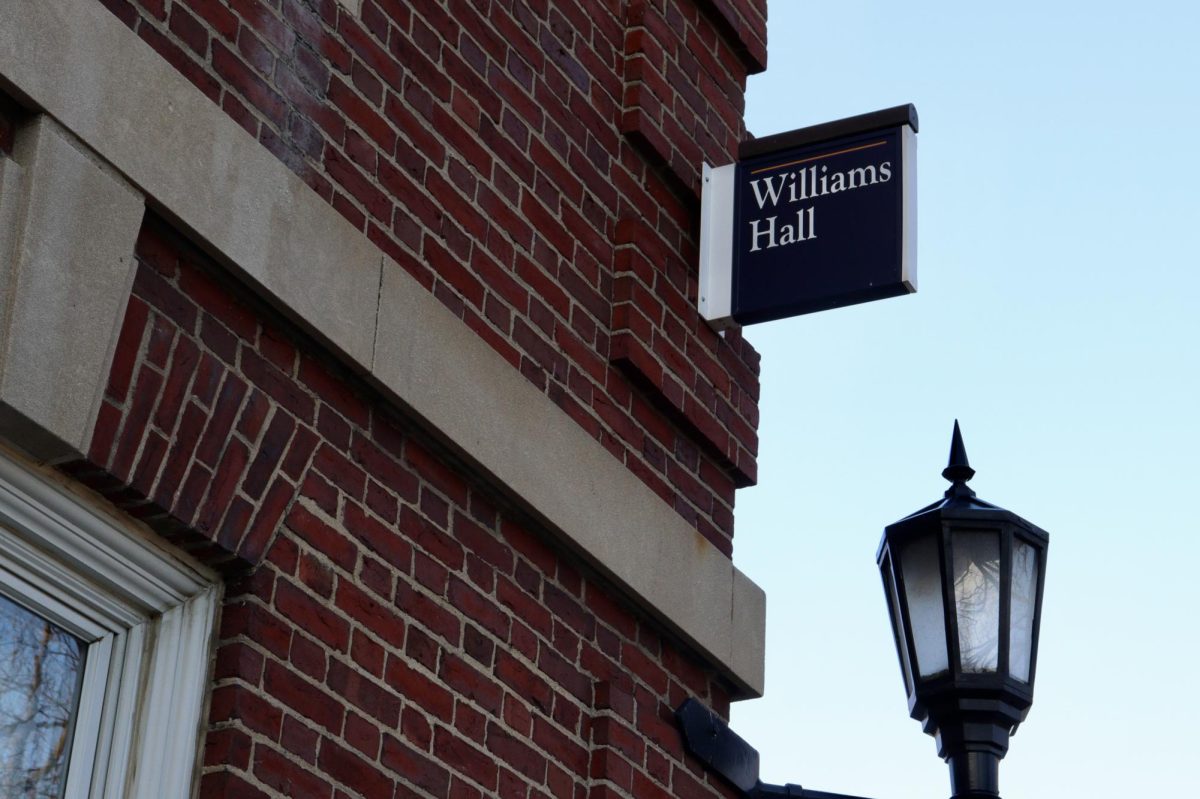
I remember sitting in the ’62 Center during the last afternoon of First Days next to people I had never spoken to before, listening to a presentation on free writing while mentally breaking down. The stress of trying to make a good impression and preparing for classes had finally gotten to me, and I felt so alone.
Later that day, I found a note from my Junior Advisors (JAs) on my door wishing me good luck on my first semester. They had taken the time to write a personalized note for each first-year in my entry. This caring gesture made me hopeful in a time when I was so unsure about my future at the College.
Knowing that someone is there for you is extremely important. Recognizing that you have a support system, even if you don’t reach for it, provides so much comfort in itself. I knew I could count on my JAs to encourage me or make me laugh. As students are deciding whether they want to participate in the JA program, I have reflected on their role at the College.
Since before the COVID-19 pandemic, there has been what experts describe as an “epidemic of loneliness” that causes several different health effects. Half of U.S. adults report feeling measurably lonely, according to a report from the U.S. Surgeon General. According to a 2023 Meta-Gallup Survey, loneliness is more prevalent in young adults, with 27 percent of young adults ages 19 to 29 reporting feeling very or fairly lonely.
In his 2023 advisory, Surgeon General Vivek Murthy suggested “cultivating a culture of connection” to address this epidemic. Murthy advises communities to “model connection values in positions of leadership and influence” and “expand conversations on social connection in schools” to create a culture of connection.
The entry system, which is sustained by the JA program, does just that. From running weekly entry snacks to supporting their first-years at their performances and sports games, JAs — themselves young adults — are tasked with creating communities. By modeling what it means to be a community member, students learn to show up for our peers, ensuring a sustained culture of connection at the College.
The former and current JAs in my classes and extracurriculars are also some of the kindest people I have met at the College. They represent friendly upperclassmen for the first-years to look up to.
I empathize with JAs who feel the pressure of supporting their first-years through difficult times. But a community is there to look out for each other. To me, the role of a JA is to provide a certain level of familiarity that lets first-years know that they can feel safe at the College. JAs provide guidance just as a friend or an older sibling would.
The death of Toby Woods ’27 made this semester particularly difficult for first-years. Directly after his death, we were scared and directionless, not knowing what to do. We leaned on each other for comfort to process our shock.
We all cope with grief in different ways, and experiencing grief away from home and family can be especially difficult. The American Psychological Association recommends reaching out to others who are also experiencing grief during the grieving process, as processing grief together is necessary for community healing. JAs did this by offering emotional support to their first-years when we were first notified that a student had died.
The Chaplains’ Office vigil reiterated the theme of community, emphasizing how — in many religious traditions — neighbors, friends, and family take care of each other in times of grief.
The JAs similarly recognized this when they organized the walk to Cole Field for first-years and JAs. They gave us direction and a space to process the death of a classmate together. What we really needed to do was connect with each other and remind each other that we were not alone.
Most of what we heard from the College was reminders of on-campus resources that could help us with our grief. Integrated Wellbeing Services and the Dean’s Office are important resources and therapy and grief counseling can be extremely helpful, but long-term healing comes from within your own community of people who are experiencing the same thing. By no means should JAs act as therapists, but they are needed for community healing.
Our JAs’ response demonstrated their dedication to my class. They acted when we needed their support the most. When then-President of the College Harry A. Garfield class of 1885 proposed the JA program in 1925, he believed JAs should be “of the highest moral character,” a calling that I believe that this year’s JAs have fulfilled.
I feel extremely fortunate that we have the JA program at the College. JAs represent the Williams ethos. They have so much insight and knowledge about how to succeed socially and academically at the College. They have a wealth of wisdom that the College administration should appreciate by working closely with JAAB and the JAs to ensure that they have what they need to support the first-years.
I personally would like to thank all the JAs for their humor, kindness, and empathy. The College wouldn’t be the same without them.
Pauli Voelkel ’27 is from Penn Valley, Pa.




